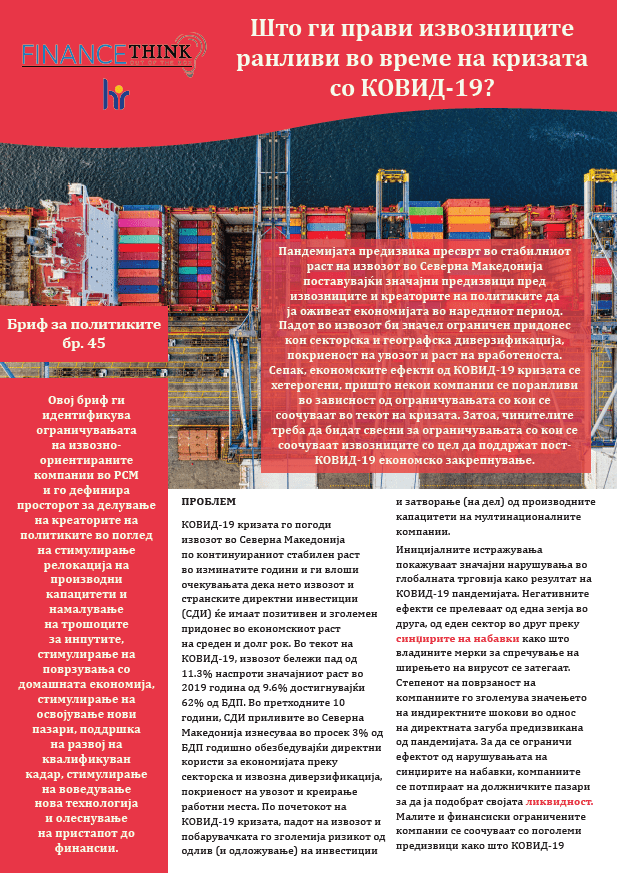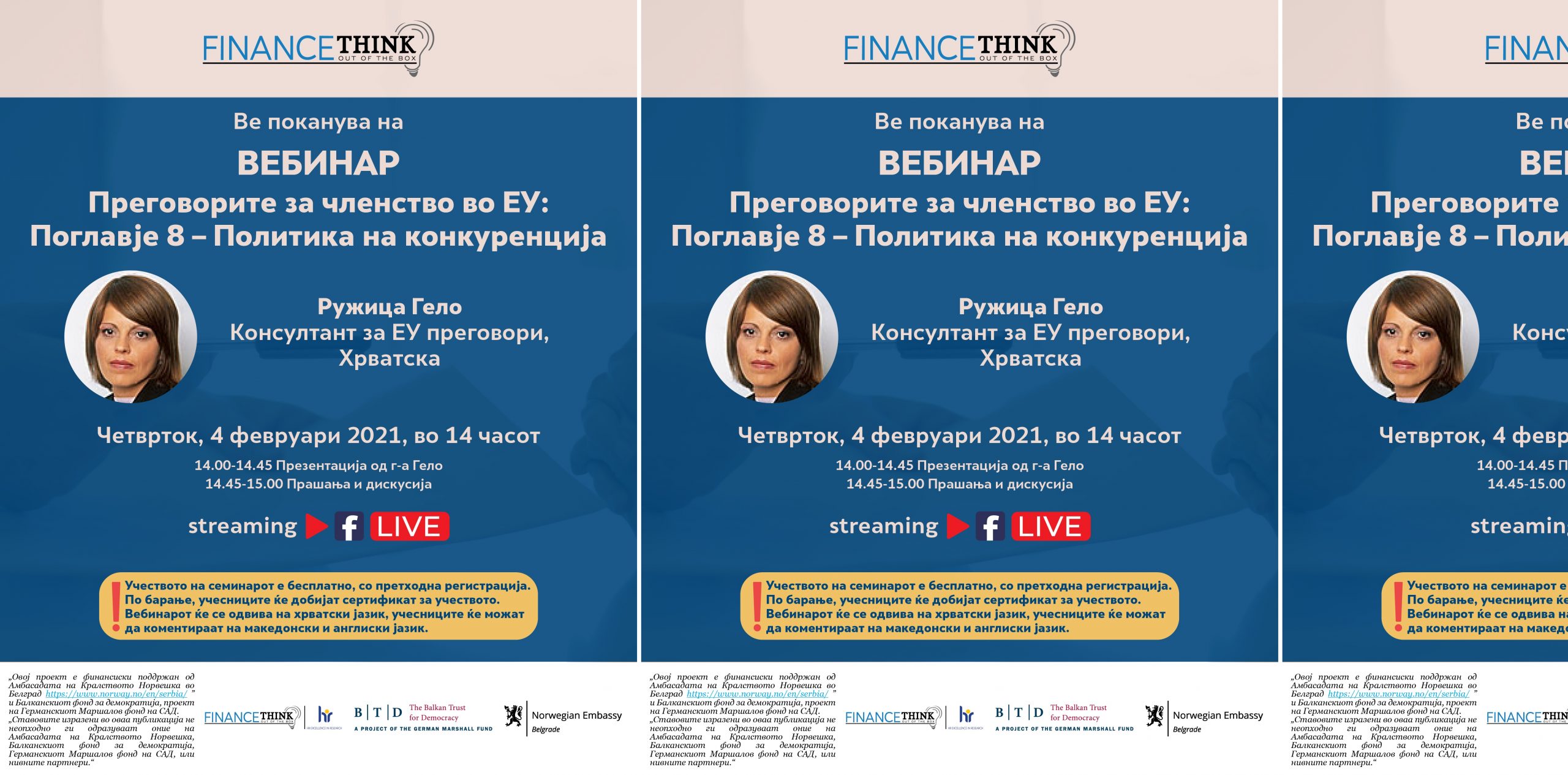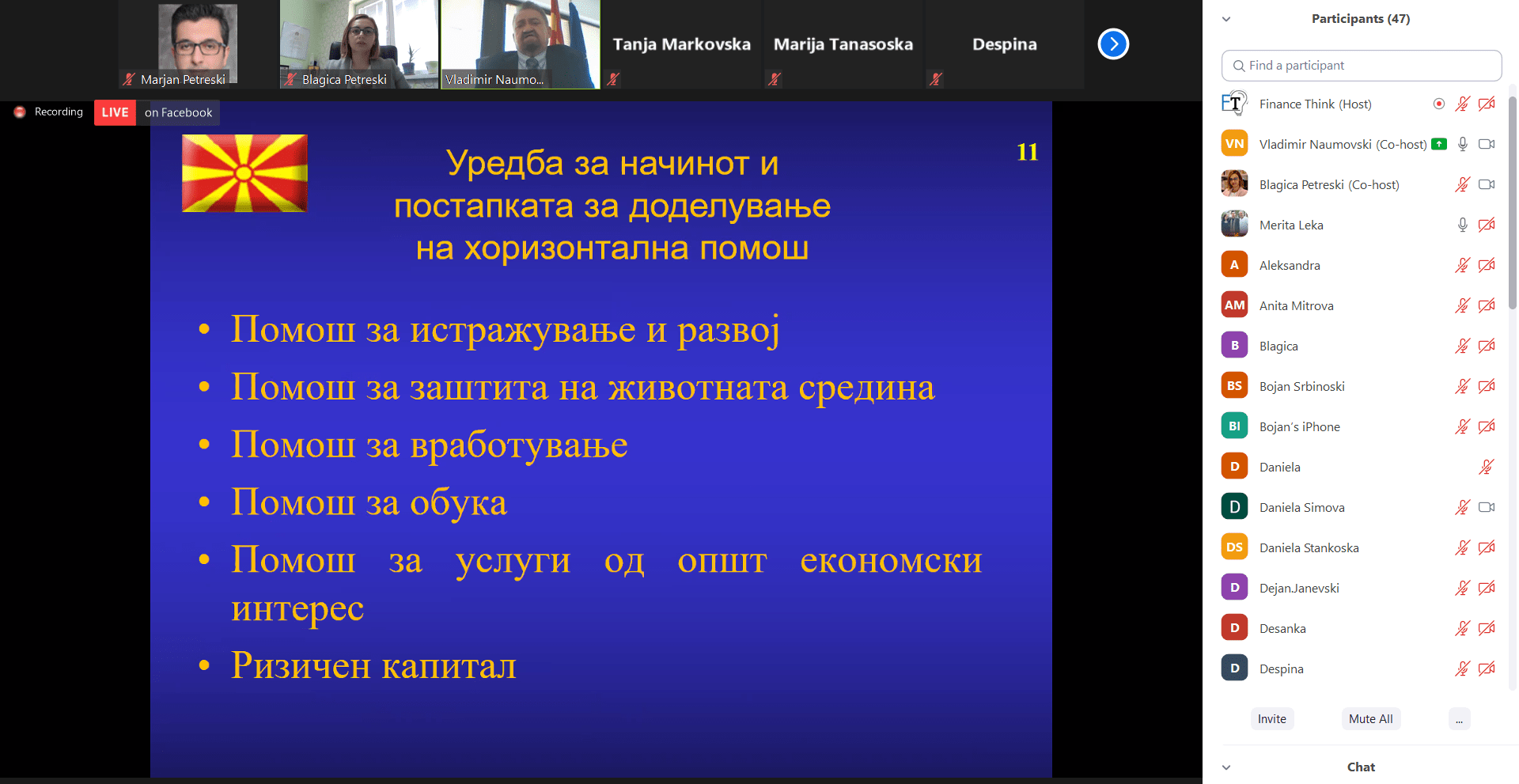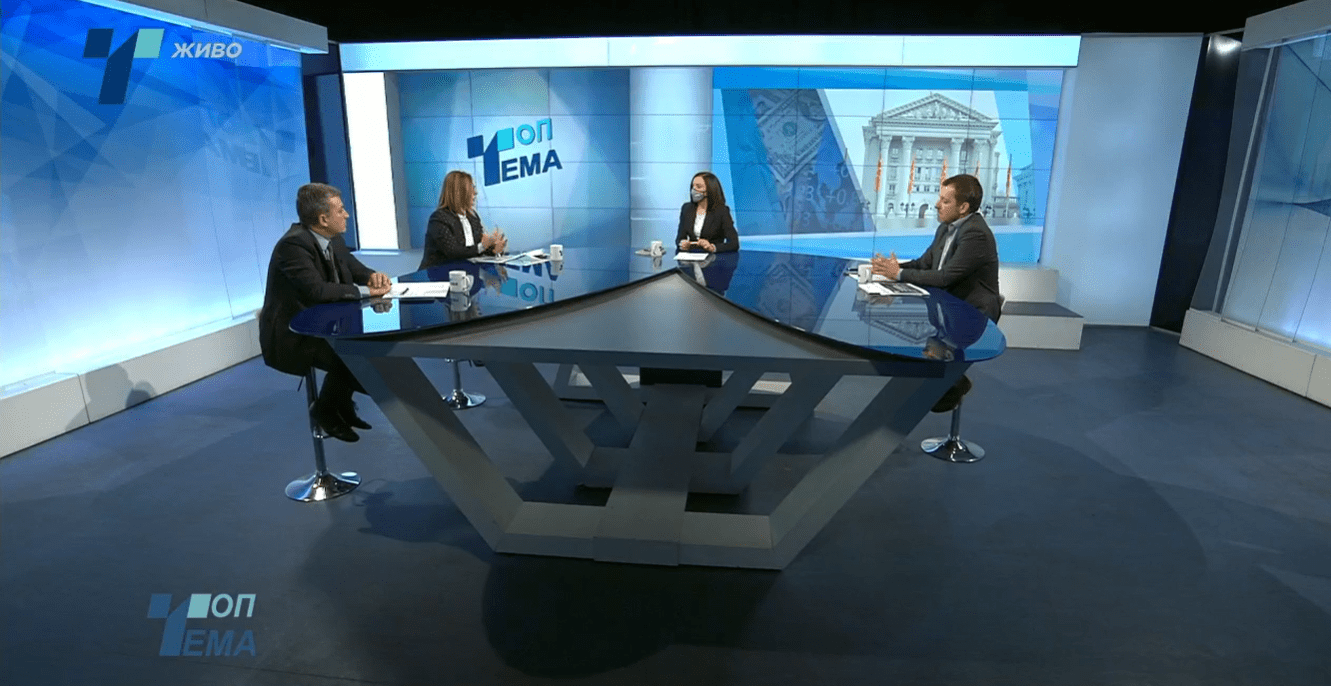Statement: “AVERAGE SALARY OF 450 EUROS”
We invite you for the second of the webinar series on state aid
Ms. Ruzuca Gelo, Consultant on EU negotiations from Croatia will deliver a webinar. Registration on the following link: forms.gle/WYDFadxF1uXWUQqU7
With great interest, a series of state aid webinars began
The first webinar was held by prof. Vladimir Naumovski, President of the Commission for Protection of Competition. Click to see the whole series of webinars.
Participation in a TV debate
Blagica Petreski, guest in Top Tema
On current economic topics, Blagica discussed with Jovan Despotovski, Director of the Directorate for TIDZs and Viktor Mizo, President of the Association of Technologically Advanced Companies. Click for link.








